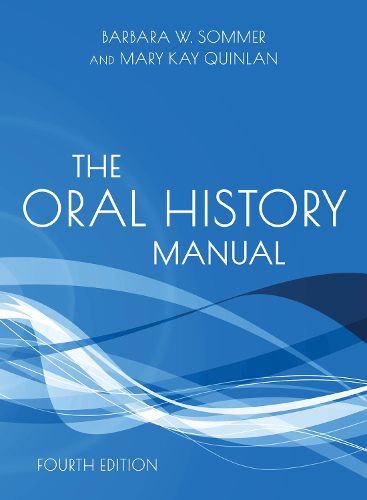Readings Newsletter
Become a Readings Member to make your shopping experience even easier.
Sign in or sign up for free!
You’re not far away from qualifying for FREE standard shipping within Australia
You’ve qualified for FREE standard shipping within Australia
The cart is loading…






The Oral History Manual, Fourth Edition, is a comprehensive and user-friendly book designed to take novice or experienced oral historians through the entire life cycle of creating an oral history project, from idea through planning, interviewing, caring for, and making oral history interviews accessible. It includes updated information on: evolving technology, including the use of-and challenges associated with-automated transcription apps; ethical and practical considerations related to oral history and social justice, including interviews with people experiencing trauma; and challenges associated with real-time interviews conducted in the wake of natural and human-caused disasters. It emphasizes that an oral historian's work is not finished when the recorder is turned off, describing in detail the importance of fully processing and preserving oral histories and related materials. The book emphasizes the importance of oral history practitioners providing context for their work so researchers and others who encounter the materials in the future will understand fully the circumstances in which the oral histories were created. The Oral History Manual, Fourth Edition also provides readers background on the evolution of oral history practice and includes appendices with sample forms that oral historians will find useful as they develop their own projects.
$9.00 standard shipping within Australia
FREE standard shipping within Australia for orders over $100.00
Express & International shipping calculated at checkout
The Oral History Manual, Fourth Edition, is a comprehensive and user-friendly book designed to take novice or experienced oral historians through the entire life cycle of creating an oral history project, from idea through planning, interviewing, caring for, and making oral history interviews accessible. It includes updated information on: evolving technology, including the use of-and challenges associated with-automated transcription apps; ethical and practical considerations related to oral history and social justice, including interviews with people experiencing trauma; and challenges associated with real-time interviews conducted in the wake of natural and human-caused disasters. It emphasizes that an oral historian's work is not finished when the recorder is turned off, describing in detail the importance of fully processing and preserving oral histories and related materials. The book emphasizes the importance of oral history practitioners providing context for their work so researchers and others who encounter the materials in the future will understand fully the circumstances in which the oral histories were created. The Oral History Manual, Fourth Edition also provides readers background on the evolution of oral history practice and includes appendices with sample forms that oral historians will find useful as they develop their own projects.